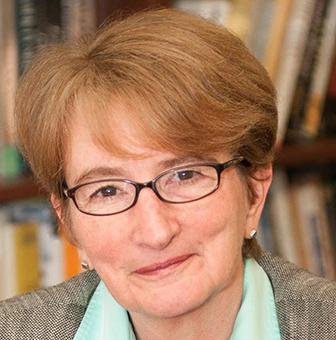Spears said when the award announcement came out in August, she was in shock.
“I was so excited to hear that I was even considered for this award, and to find out that I won was an amazing feeling,” Spears said.
Every year the American Public Health Association’s Medical Care section decides on a published book that stands out and represents the medical community well.
Spears’s book takes readers back to the mid-1990s in Anniston, Alabama, where residents began a fight against the agrochemical company Monsanto over the dumping of PCBs in the city’s working-class west side.
“In my book I explore the causes and various implications of environmental inequalities, showing how Civil Rights Movement activism undergirded Anniston’s campaigns for redemption and justice,” Spears said.
Spears said her main goal when writing this book was to open people’s eyes to burdens they may not have experienced or even known about.
“I hope readers will learn the burden of environmental harms that falls unequally on communities of color and the poor is a systemic problem and must be addressed comprehensively – through reforming how we regulate toxic chemicals, through addressing the unequal distribution of noxious facilities and waste sites and through putting in place strong public health measures that limit toxic exposures for everyone,” she said.
Natalie Adams, director of New College, said on behalf of New College, all students and professors are very proud of Spears’ achievements.
“Students in New College and The University of Alabama are extremely fortunate to have Dr. Spears as faculty,” Adams said. “Not only is she a rising star in the field of environmental history, she is also a civil rights historian and an advocate for social justice.”
Lynne Adrian, chair of the department of American studies, said she attended a school event in October where Spears spoke about her award-winning book, and said she was very impressed.
“From everything I have heard and read about in the book, she does an excellent job of combining all of the legal records of the case and the scientific data on the dangers of PCB with the real human stories,” Adrian said. “It’s very rare for a book to help understand some difficult things and put them into a bigger picture, and I believe it was quite remarkable that Dr. Spears was able to do that.”
John Miller, the assistant director of New College, said Spears’s book truly embodies the person whom the award is named after.
“Dr. Arthur Viseltear, for whom the prize was named, was a highly regarded ethicist and public health historian,” he said. “As he noted in a 1989 commencement address he delivered to the Yale University School of Epidemiology and Public Health, the field of public health, although it began as a technical field, became an ethical one as well. Specifically, public health has made it possible to focus the public eye on the common good when members of society who don’t have access to power or to medical care can’t effect change themselves. Dr. Spears’ book is written in the same spirit: to call attention to injustice so that it can be prevented in the future.”









